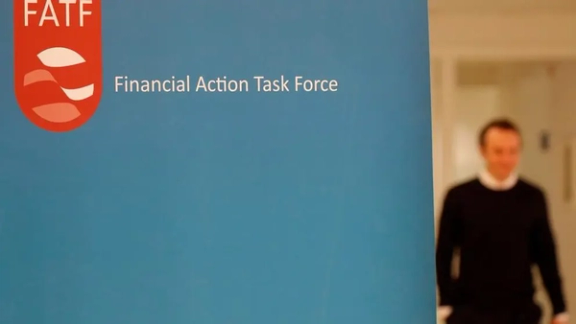Iran hardliner decries firefighter offer for 'weak, good-for-nothing' Los Angeles

A hardline Iranian lawmaker torched an Iranian government offer to help put out fires in Los Angeles, home to a sizeable Iranian diaspora population, as a waste of money.
“I am not okay with a single cent of my taxes being spent on the weak Los Angeles good-for-nothing people before it goes to Gaza,” Tehran representative Mehdi Koochakzadeh said.
His remarks were a rebuke to government spokesperson Fatemeh Mohajerani, who over the weekend offered to send firefighters to help combat blazes which have destroyed hundreds of homes and killed at least two dozen people.
“Humanity cannot remain indifferent to the destruction of homes and natural resources, whether caused by war or the wrath of nature,” she said, drawing a parallel with Gaza which lies decimates as Israel fights Iran-backed armed groups.
Koochakzadeh also took aim at two bills seeking to reduce Iran's bank blacklisting, saying they served Washington's goals.
He slammed slammed the efforts to accede to anti-money laundering conventions under the Financial Action Task Force (FATF) as tantamount to “approving servitude to America.”
The bills aim to ease banking restrictions imposed on Iran due to its placement on the FATF blacklist, which hinders the country's international banking operations.
Earlier this month, Iran's Minister of Economy announced that the Supreme Leader had authorized a review of the two key international conventions.
Abdolnaser Hemmati shared on X that relative moderate president Masoud Pezeshkian informed him of the Ali Khamenei's approval for revisiting the Palermo and Countering the Financing Of Terrorism (CFT) bills.
Koochakzadeh's comments sparked a stir within the parliamentary session, leading Speaker Mohammad Bagher Ghalibaf to intervene after Koochakzadeh’s microphone was cut off.
Ghalibaf reminded the assembly that parliament had already fulfilled its role by referring the bills to the Expediency Discernment Council, a body whose members are appointed by Khamenei to rule on disputes between the parliament and government.
“The council had a one-year period to address this issue, which has now lapsed. The government is pursuing permission for a renewed review,” Ghalibaf said.
The Expediency Discernment Council, became involved after another senior body the Guardian Council rejected the two FATF-related bills in 2017.

The FATF, a global financial watchdog created by the G7, plays a crucial role in shaping international banking policies.
Iran’s continued placement on the FATF blacklist has done serious harm to the country’s banking system, leaving it categorized as high-risk due to deficiencies in addressing money laundering, terrorism and proliferation financing.
For Iran to re-enter the international financial system, it must finalize its legislation on the Palermo and CFT conventions.
Despite efforts to join the FATF, experts such as Mohammad Khazaei, Secretary-General of the Iranian Committee of the International Chamber of Commerce, have said additional reforms will be necessary to attract foreign investment.